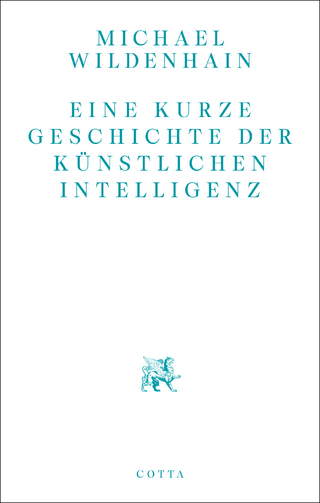
Forks in the Digital Road
Oxford University Press Inc (Verlag)
978-0-19-761777-9 (ISBN)
- Lieferbar (Termin unbekannt)
- Versandkostenfrei innerhalb Deutschlands
- Auch auf Rechnung
- Verfügbarkeit in der Filiale vor Ort prüfen
- Artikel merken
In Forks in the Digital Road, Scott J. Shackelford and Scott O. Bradner revisit the key decision points in the history of cybersecurity and Internet governance, revealing the alternative paths or "forks" that existed at the time and addressing the question of "what if?". What if encryption was built into the Internet's architecture from the beginning? What if Section 230, which shields Internet platforms from civil liability, had taken a different form? What if Cerf and Kahn had structured TCP/IP in another way? What if Tim Berners-Lee had taken the advice of counsel and patented the World Wide Web? And what if the US government had not gotten directly involved with Internet governance in 1998, or elected not to help launch a new era of cyber conflict in 2006?
Shackelford and Bradner answer these questions, and many more. They explain how things might have been different if other paths had been followed and offer practical ideas to help build a new vision of cyberspace that is as secure, private, efficient, and fun as possible. At a time when the future of cyberspace has never been more in doubt--with the potential for a new Digital Cold War, or even a "splinternet" having the potential to fracture cyberspace into a series of national-level intranets in the wake of the war in Ukraine--the time is ripe to take both a look back, and ahead.
Scott J. Shackelford is the Provost Professor of Business Law and Ethics at the Indiana University Kelley School of Business. He serves as the Executive Director of the Ostrom Workshop and the Center for Applied Cybersecurity Research. He is also an Affiliated Scholar at both the Harvard Kennedy School's Belfer Center for Science and International Affairs and Stanford's Center for Internet and Society. Shackelford has written more than 100 articles, book chapters, essays, and op-eds for diverse publications. His research has also been covered by an array of outlets, including Politico, NPR, CNN, Forbes, Time, The Washington Post, and the Los Angeles Times, and he is a frequent contributor to outlets including The Wall Street Journal, Christian Science Monitor, and World Economic Forum. Both Professor Shackelford's academic work and teaching have been recognized with numerous awards, including a Harvard University Research Fellowship, a Stanford University Hoover Institution National Fellowship, a Notre Dame Institute for Advanced Study Distinguished Fellowship, the 2014 Indiana University Outstanding Junior Faculty Award, the 2015 Elinor Ostrom Award, and the 2022 Poets & Quants Best 40-Under-40 MBA Professors Award. Scott O. Bradner retired from Harvard University in 2016 after 50 years working in the areas of computer programming, system management, networking, IT security, and identity management. He was involved in the design of the original Harvard data networks, the Longwood Medical Area network (LMAnet), and New England Academic and Research Network (NEARnet). He was founding chair of the technical committees of LMAnet, NEARnet, and the Corporation for Research and Enterprise Network (CoREN). Bradner served in numerous roles in the Internet Engineering Task Force (IETF), including as the co-director of the Operational Requirements Area (1993-1997), IPng Area (1993-1996), Transport Area (1997-2003), and Sub-IP Area (2001-2003). He was a member of the Internet Engineering Steering Group (IESG) and was an elected trustee of the Internet Society, where he was the VP for Standards from 1995 to 2003 and Secretary to the Board of Trustees from 2003 to 2016. Bradner was also a member of the IETF Administrative Support Activity (IASA) as well as a trustee of the IETF Trust from 2012 to 2016.
Tables and Figures
Foreword by Vint Cerf
Preface
Acknowledgments
Abbreviations
Part One: Setting the Stage
1: It was Not Just the Bomb: Core Technical Decisions that Created the Internet
2: "Layer 9": Core Policy Decisions that Gave us the Internet We Have
Part Two: A Play in Five Acts
3: A Flaw in the Design
4: The Web for Free
5: Regulating Online Speech
6: Why We're Still Living in 1995: ISP Wars and Net Neutrality
7: What Passed for Internet Governance
Part Three: Curtains
8: Taking Stock: The Internet We Deserve
Conclusion
Appendix
Notes
Index
| Erscheinungsdatum | 25.04.2024 |
|---|---|
| Verlagsort | New York |
| Sprache | englisch |
| Maße | 157 x 236 mm |
| Gewicht | 363 g |
| Themenwelt | Geschichte ► Teilgebiete der Geschichte ► Technikgeschichte |
| Sozialwissenschaften ► Kommunikation / Medien ► Kommunikationswissenschaft | |
| Sozialwissenschaften ► Politik / Verwaltung ► Staat / Verwaltung | |
| Wirtschaft ► Volkswirtschaftslehre ► Wirtschaftspolitik | |
| ISBN-10 | 0-19-761777-8 / 0197617778 |
| ISBN-13 | 978-0-19-761777-9 / 9780197617779 |
| Zustand | Neuware |
| Haben Sie eine Frage zum Produkt? |
aus dem Bereich


